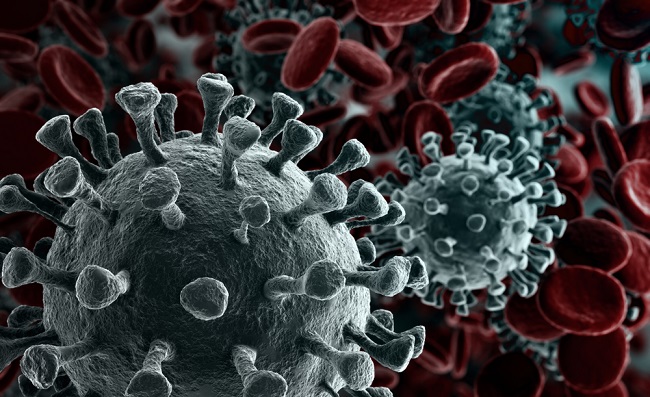Microscopic differences demonstrate why cutting-edge virus research is crucial in Africa
Published: 20 November 2024
Microscopic, single cell differences found in the lungs of COVID-19 patients in Malawi demonstrate the value and importance of cutting-edge infectious disease research in Sub-Saharan Africa
Microscopic, single cell differences found in the lungs of COVID-19 patients in Malawi demonstrate the value and importance of cutting-edge infectious disease research in Sub-Saharan Africa.
The new study – the first of its kind in a Sub-Saharan population – is published in Nature Medicine and reveals previously unobserved differences in the inflammatory response to SARS-CoV-2, the virus that causes COVID-19, in patients who live in Malawi, compared to those who live in western countries. Scientists believe these differences in response to the virus may be linked to both genetic and environmental factors, highlighting the importance of a global approach to infectious disease research.

Led by the University of Glasgow in collaboration with Malawian scientists at Malawi-Liverpool-Wellcome programme and Kamuzu University of Health Sciences and an international research team, the study is the first to carry out single cell tests in lung samples in any Sub-Saharan population.
To carry out the study the team undertook a series of postmortem investigations in fatal lung disease patients, with and without COVID-19, in the early stages of the pandemic (2020-21). Seeking to understand how the disease had impacted people in Malawi, the team carried out single cell tests on lung and nasal tissues as well as on blood samples, alongside using imaging mass cytometry – a cutting-edge imaging technology.
Data from the study showed that, broadly, the majority of pathological changes in the lung and some immunological responses in COVID-19 in Malawian patients had similarities to other non-African groups. Researchers say these findings are reassuring, indicating that infection with COVID-19 is not an entirely different disease process when comparing these different patient populations - indicating the likely effectiveness of broad anti-inflammatory treatments like steroids in Malawian patients.
However, looking in more detail at a cellular level, the research team also found marked differences in the Malawian samples compared with other global data, with potential implications for more targeted treatments – indicating that some treatments, which have been fairly widely used, may not be effective in Malawian patients.
The researchers believe both genetic and environmental factors, including lifetime exposure to other locally endemic pathogens such as TB and malaria, may be behind some of the differences in cell responses to the disease. The team say their findings highlight the vital importance of carrying out cutting-edge research across different countries and regions of the world, in order to ensure a fuller picture of human health.
Dr Christopher Moxon, lead author of the paper from the University of Glasgow, said: “It is great to see the results come together of this major multi-disciplinary team effort. The work had social, logistical as well as technical challenges and it was only through bringing together local and international experts in these areas that this study was possible. Our team has shown that we can apply some of the most cutting-edge techniques in a centre in sub–Saharan Africa and produce results with important translational implications. This lays exciting foundations for the future.”
James Nyirenda, first author on the paper who carried out the research while at the Malawi-Liverpool-Wellcome programme and Kamuzu University of Health Sciences, said: “Our study highlights the need for Investing in advanced discovery research in low-income regions. This is not just about scientific innovation; it’s also about bringing equal benefits of scientific innovation to under-represented countries for equity. By uncovering unique immune responses to COVID-19 in Malawi, our study highlights how targeted immunological research can lead to more effective, accessible treatments for populations that might otherwise be overlooked.”
This research is part of a wider suite of Human Cell Atlas (HCA) research papers, all published simultaneously across Nature journals. The HCA is an international collaborative consortium whose mission is to create comprehensive reference maps of all human cells—the fundamental units of life—as a basis for understanding human health and for diagnosing, monitoring, and treating disease. The HCA community is producing high quality Atlases of tissues, organs and systems, to create a milestone Atlas of the human body. More than 3,500 HCA members from over 100 countries are working together to achieve a diverse and accessible Atlas to benefit humanity across the world.
Discoveries are already informing medical applications from diagnoses to drug discovery, and the Human Cell Atlas will impact every aspect of biology and healthcare, ultimately leading to a new era of precision medicine
The paper, ‘Spatially resolved single-cell atlas of the lung in fatal Covid19 in an African population reveals a distinct cellular signature and an interferon gamma dominated response’ is published in Nature. The work was funded by The Bill and Melinda Gates Foundation, a UKRI Future Leaders Fellowship award and the Wellcome Trust.
Enquiries: ali.howard@glasgow.ac.uk or elizabeth.mcmeekin@glasgow.ac.uk
First published: 20 November 2024

